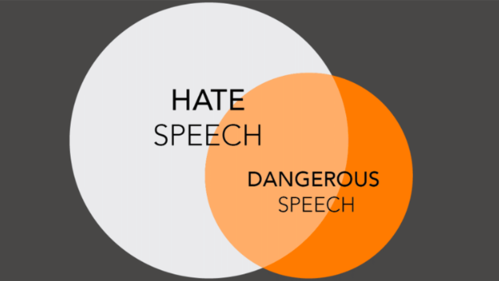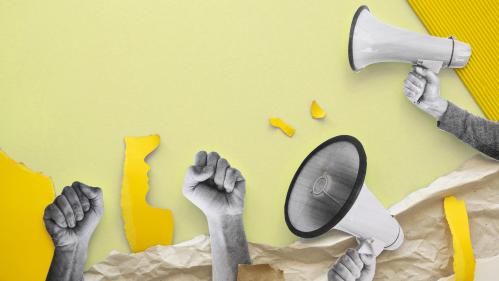
Speak Up!
Disrupt Everyday Bigotry
Bias Prevention Campaign
Be an active bystander.
To be a vibrant and inclusive community, we must collectively reject hate.
Each of us must take a stand against bigotry and hatred directed at any of us. We cannot ban all offensive and hateful speech, instead we must commit to speak up and counter bigotry and hatred whenever and wherever we see it.
Why Should I Speak Up?
Daily indignities and other acts of bias disrupt learning and working environments and harm members of our community.
Speak Up! is a call to action for all members of the university community to respond when they observe bigotry and to be vigilant about disrupting personally held bias.
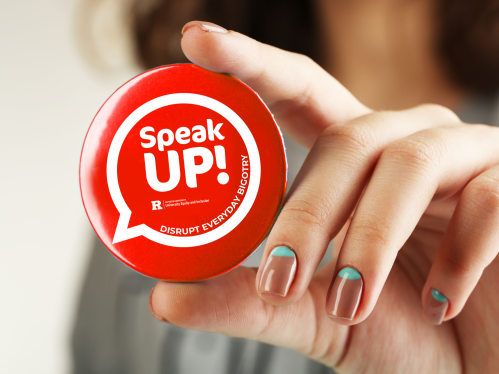
Show Your Support
Wear a Speak Up! button. Use a Speak Up! Zoom background.
Both are visible reminders to take action and promote an inclusive environment for faculty, staff, and students.
Check out the identity-based resource guides available on the Unpack Hate page and start learning now.
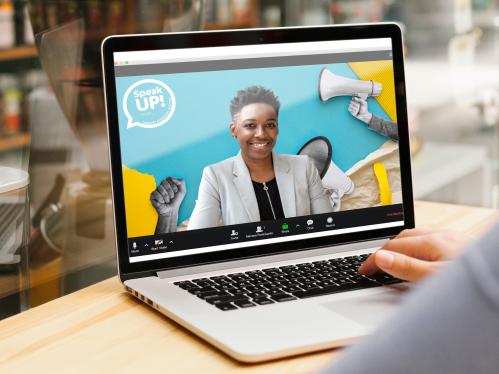
Speak Up! Responding to Everyday Bigotry Resource Guide
Learn four strategies for interrupting bias and Rutgers resources to support true inclusivity.
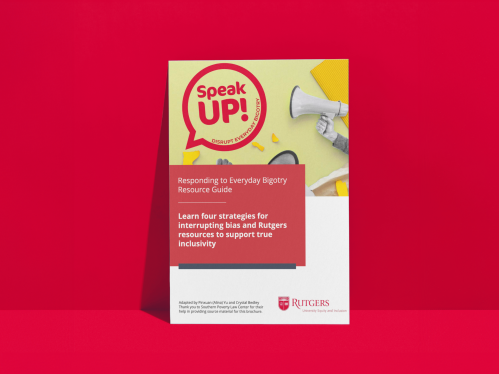
Combat Bigotry and Bias
- Speak up when you hear or see (observe) bigotry
-
Question and identify bias when I see (observe) it
-
Be mindful of my own behaviors
-
Promote and appeal to higher principles
-
Set limits (boundaries/expectations) on what is said or done around me
-
Seek help and help others to work against bigotry
-
Remain vigilant and persistent.
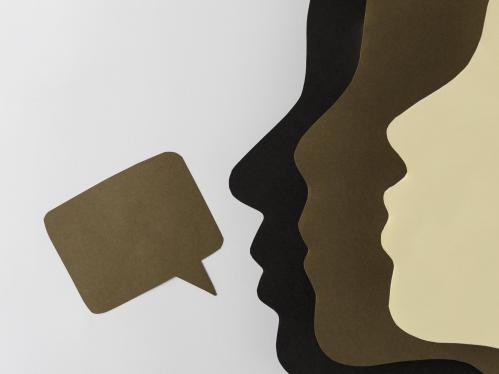
Speak Up Guide: Responding to Everyday Bigotry
The Southern Poverty Law Center gathered hundreds of stories of everyday bigotry from people across the United States. They told their stories through e-mail, personal interviews and at roundtable discussions in four cities. People spoke about encounters in stores and restaurants, on streets and in schools. No matter the location or relationship, the stories echo each other.
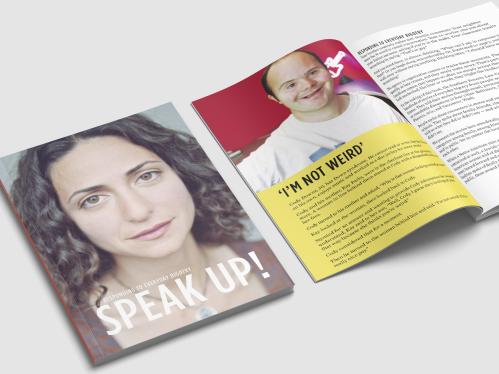
What is a Bias Incident?
A “bias incident” is defined as an act – either verbal, written, physical, or psychological that threatens or harms a person or group on the basis of actual or perceived race, religion, color, sex, age, sexual orientation, gender identity, or expression, national origin, ancestry, disability, marital status, civil union status, domestic partnership status, atypical heredity or cellular blood trait, military service or veteran status. Cultivating trust requires accountability.
Bias Reporting and Counseling Services for Students
|
Chancellor-led Unit |
Bias Reporting | Counseling |
|---|---|---|
| Rutgers–New Brunswick | Dean of Students | Counseling, Alcohol and Other Drug Assistance Program and Psychiatric Services (CAPS) |
| Rutgers–Newark | Dean of Students | Counseling Center |
| Rutgers–Camden | Dean of Students | Student Wellness Center Psychological and Counseling Services |
| Rutgers Health | Student Affairs units within the respective schools |
Don't Forget
When an act of bias or hate affects our community, you may experience a range of emotions, including anger, fear, isolation, stress, uncertainty, and concern for your personal safety and that of others. Hate takes its toll, and we all need to be mindful about self-care in its wake.
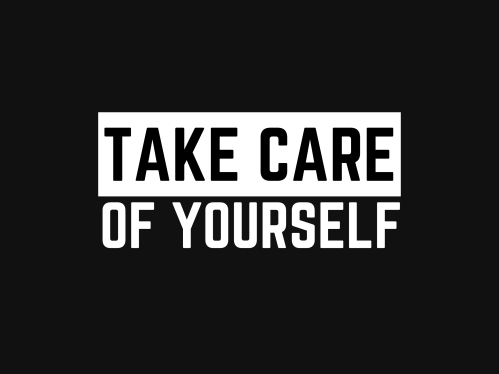
Bias Reporting and Counseling Services for Faculty and Staff
| Bias Reporting | Office of Employment Equity |
| Wellness | Human Resources Wellness Resources |
| Confidential Support Line | Rutgers4U, 1-855-652-6819, offers emotional and therapeutic support |
